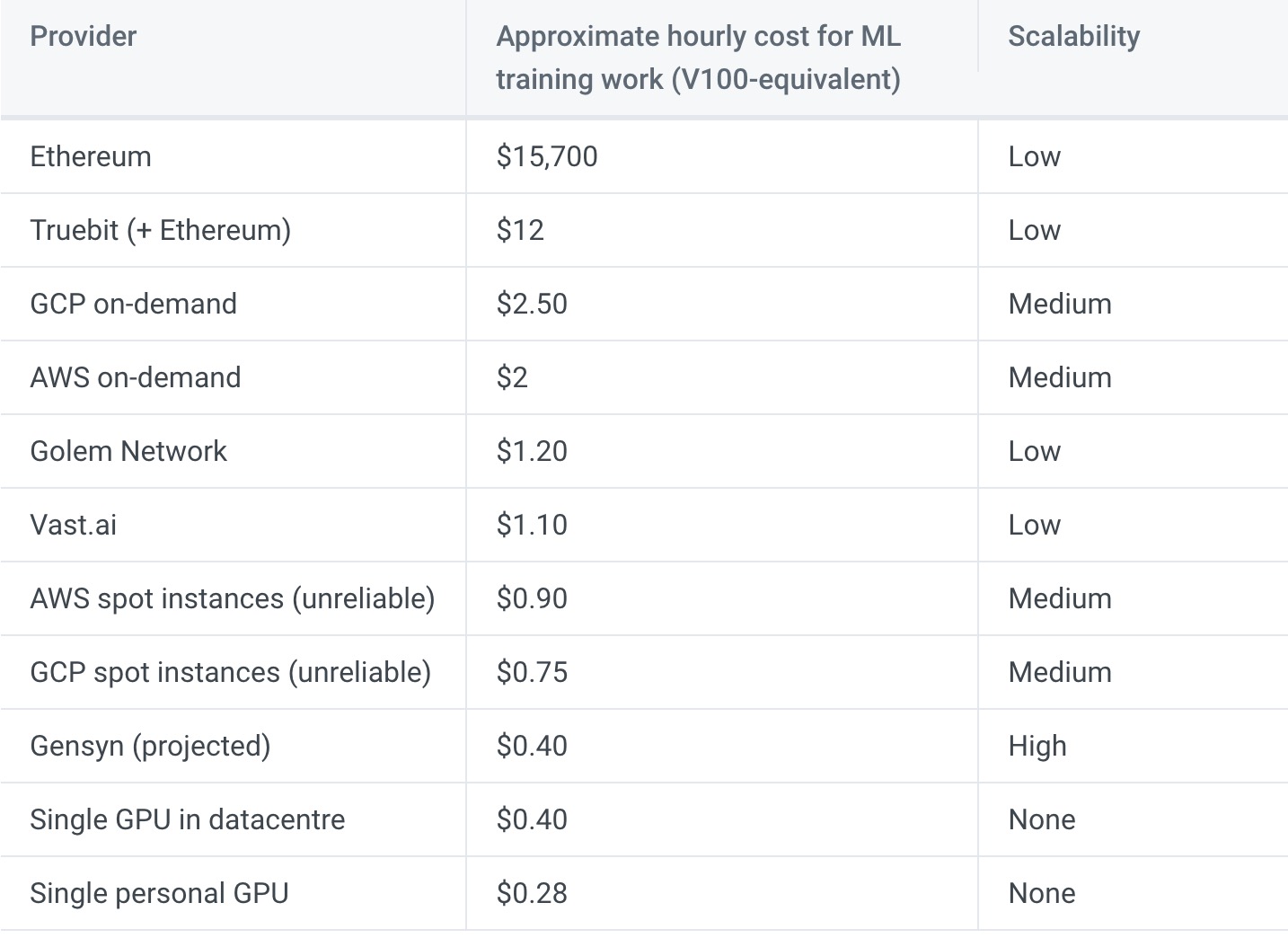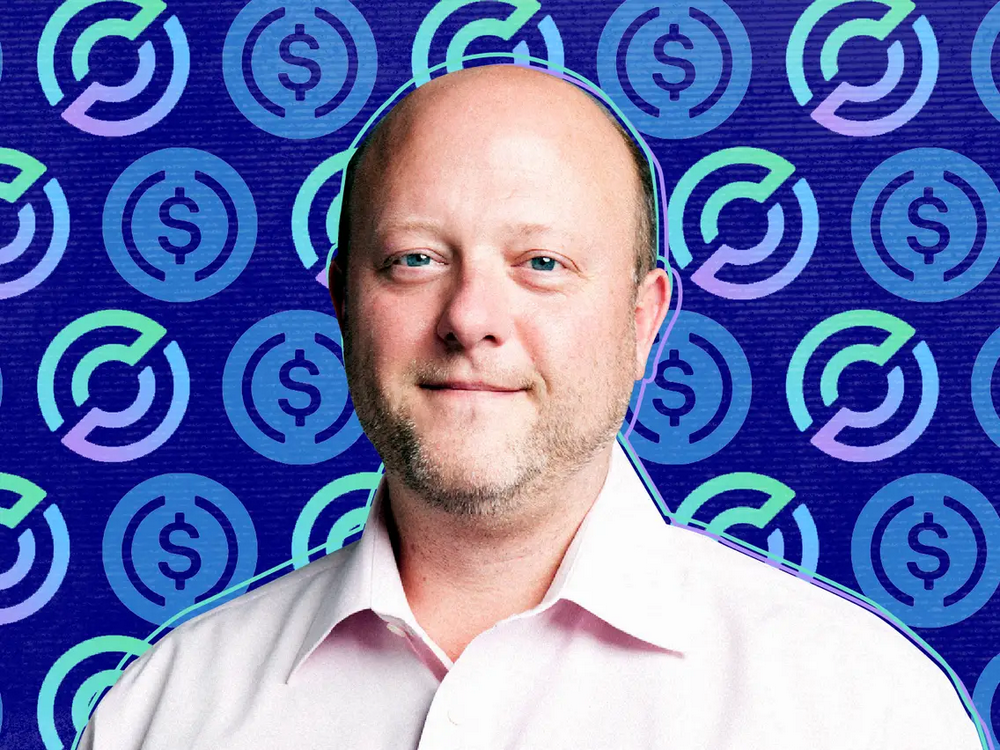Interpreting Gensyn: Blockchain AI Computing Protocol that Raised Over $50 Million in Funding Led by a16z
Gensyn: Blockchain AI Computing Protocol that Raised Over $50M in Funding Led by a16zAuthor: Nancy, BlockingNews
With the rise of ChatGPT, AI has become a hotly-discussed field, and various related projects have seen an explosion of development and have received capital favor. Recently, Gensyn, a UK-based blockchain AI computing protocol, announced the completion of a $43 million Series A round of financing led by a16z, with other investors including CoinFund, Canonical Crypto, Protocol Labs, Eden Block, and many angel investors in the AI and crypto fields.
How did Gensyn win such a large amount of financing in the fiercely competitive AI field? How did this blockchain startup, founded just over two years ago, democratize computing, and become an important infrastructure component of Web3 applications?
Founders are members of the same entrepreneurship incubator, raising over $50 million in three rounds of financing
Gensyn was founded in 2020 by senior computer science and machine learning researchers Ben Fielding and Harry Grieve. Harry Grieve, who graduated from Brown University and the University of Aberdeen, is a data scientist and entrepreneur who has led a startup from seed round to Series B, and sold enterprise AI solutions to some of the world’s largest financial institutions. Ben Fielding graduated from Northumbria University and served as co-founder of the SaaS platform Fair Custodian and director of Research Analytics.
- US lawyers discuss the future of the SEC’s case against Binance and Coinbase: the outcome may be very different
- Vitalik: To achieve large-scale adoption, Ethereum must undergo three transitions: L2, wallets, and privacy.
- Web3 without AI has no soul. How ZKML Reshapes the Relationship Between AI and Blockchain

Ben Fielding (left) and Harry Grieve (right)
Ben Fielding and Harry Grieve are both members of the Entrepreneur First entrepreneurship incubator’s LD14 cohort, and the two of them met between March and September 2020. They then decided to team up to start a business.
In January 2021, Gensyn received $1.1 million in Pre-Seed funding from four investors: 7percent Ventures, Entrepreneur First, Counterview Capital, and Id4 Ventures. Later, in March 2022, Gensyn raised a $6.5 million seed round led by Eden Block with 11 PTTs, with 11 investors including Galaxy Digital, Maven 11, Coinfund, Jsquare, Hypersphere, and Zee Prime participating. In the latest round of financing, Gensyn completed a $43 million Series A round of financing, but did not disclose a specific valuation, and this round of financing will be used to accelerate the protocol’s launch and expand the employee team, hiring machine learning engineers.
Recent progress in artificial intelligence has been incredible and has the power to save the world. However, building AI systems requires increasingly large amounts of computing power to train and reason with today’s largest and most powerful models. This means that large tech companies have an advantage over startups in the race to extract value from AI, thanks to their privileged access to computing power and economies of scale in large data centers. To compete on a level playing field, startups need affordable access to large-scale computing power. Blockchain, as a new kind of computer, is unique in that developers can write code and make strong commitments about how that code will behave in the future. This permissionless component of the blockchain can create a market for the buying and selling of computation (or any other kind of digital resource, such as data or algorithms), without intermediaries, anywhere in the world. a16z explained why it invested in Gensyn in a post.
So far, Gensyn has raised over $50 million in three funding rounds.
The ultimate goal is to democratize AI with a testnet expected to launch later this year
Gensyn is a decentralized deep learning computing protocol that aims to be the foundational layer for machine learning computation, similar to how Ethereum executes smart contracts.
As a blockchain-based AGI (artificial general intelligence) compute market protocol, Gensyn connects developers (anyone who can train machine learning models) with problem solvers, or “Solvers” (anyone who wants to use their machine to train machine learning models). By leveraging underutilized, machine learning-capable, long-tail computing devices around the world (such as small data centers, personal gaming computers, M1 and M2 Macs, and even smartphones), it increases the available computing power for machine learning by 10-100x.
AGI is widely considered the holy grail of the AI field, but from self-driving cars to computer-generated images, researchers often rely on massive amounts of computation that are critical for everything using AI but can be difficult to obtain sufficient computing power to do it all. As a16z noted earlier, the monopoly of large tech companies is leading to a highly centralized AGI industry.

Gensyn is essentially a layer-one proof-of-stake blockchain based on the Substripe protocol that can facilitate task allocation and rewards for machine learning through smart contracts, enabling the rapid learning of AI models and reducing the cost of deep learning training. As shown in the figure above, the hourly cost of Gensyn’s machine learning training work is approximately $0.4, far lower than the required costs of AWS ($2) and GCP ($2.5), etc.
The core challenge of Gensyn is to verify whether the computational tasks executed on devices have been performed correctly and trigger payments through tokens. To do this, Gensyn mainly addresses the verification problem through three key concepts: probability proof-of-learning (constructing a certificate for the work performed using metadata from the gradient-based optimization process and rapidly verifying it by replicating certain stages), a graph-based precise positioning protocol (using multi-granularity, graph-based precise positioning protocols and cross-evaluators for consistent execution to allow re-execution of verification work and comparison of consistency, and ultimately confirmed by the chain itself), and Truebit-style incentive games (using staking and slashing to build an incentive game that ensures that each financially rational participant acts honestly and performs its expected tasks).
Gensyn’s system mainly consists of four main participants: submitters, solvers, validators, and reporters. Submitters are the end users of the system who provide tasks to be calculated and pay for completed work units; solvers are the main working part of the system, performing model training and generating proofs for validators to check; validators can link non-deterministic training processes to deterministic linear computations, replicate part of the solver’s proof, and compare distances with expected thresholds; and reporters are the last line of defense of the system, primarily checking the work of validators and challenging it to win the jackpot.
According to official sources, the development of the Gensyn protocol will be divided into three stages: testnet, canary network, and mainnet. The tokens used in the testnet will be non-permanent, and testnet users will be early adopters and core members of the community who will receive rewards at the TGE (token generation event). After successful iterations of the testnet, the Gensyn protocol will be launched as a canary network parallel chain on the Kusama relay chain; the mainnet will be a robust real-time protocol that any organization or individual can fully use, including the launch of mainnet utility tokens. According to Harry Grieve, Gensyn plans to launch a testnet later this year.
It is worth mentioning that the Gensyn Foundation, as a representative of the interests of the protocol, is closely connected to the early community, and governance will be carried out in a decentralized manner, with decisions made based on on-chain proposals and citizen voting.
Overall, Gensyn’s core goal is to achieve AI democratization through decentralized planning, and to ensure that this huge potential productivity boost can be used by any talented entrepreneur.
We will continue to update Blocking; if you have any questions or suggestions, please contact us!
Was this article helpful?
93 out of 132 found this helpful
Related articles
- Blockchain’s Ambition: Anti-Keynesianism, Public Life, and Transhumanism
- Evening Must-read | How Blockchain and Ethereum are Changing the World
- Interpreting the Performance of 14 L1 Public Chains in Q1: Stacks Emerges as Dark Horse, Network Usage Rate Generally Decreases
- Understanding the Equity Staking Mechanism of Blockchain, Oracle, and DeFi in one article
- How to find the address of a whale that earned 50 times in 3 days using existing resources?
- Analysis of Beijing’s Internet 3.0 White Paper (Full Text Included): Separating from Web 3.0, Focusing on Artificial Intelligence and Metaverse
- Blockchain Capital: Why did we lead the investment in Worldcoin? We believe it will become the largest gateway to the crypto world.






